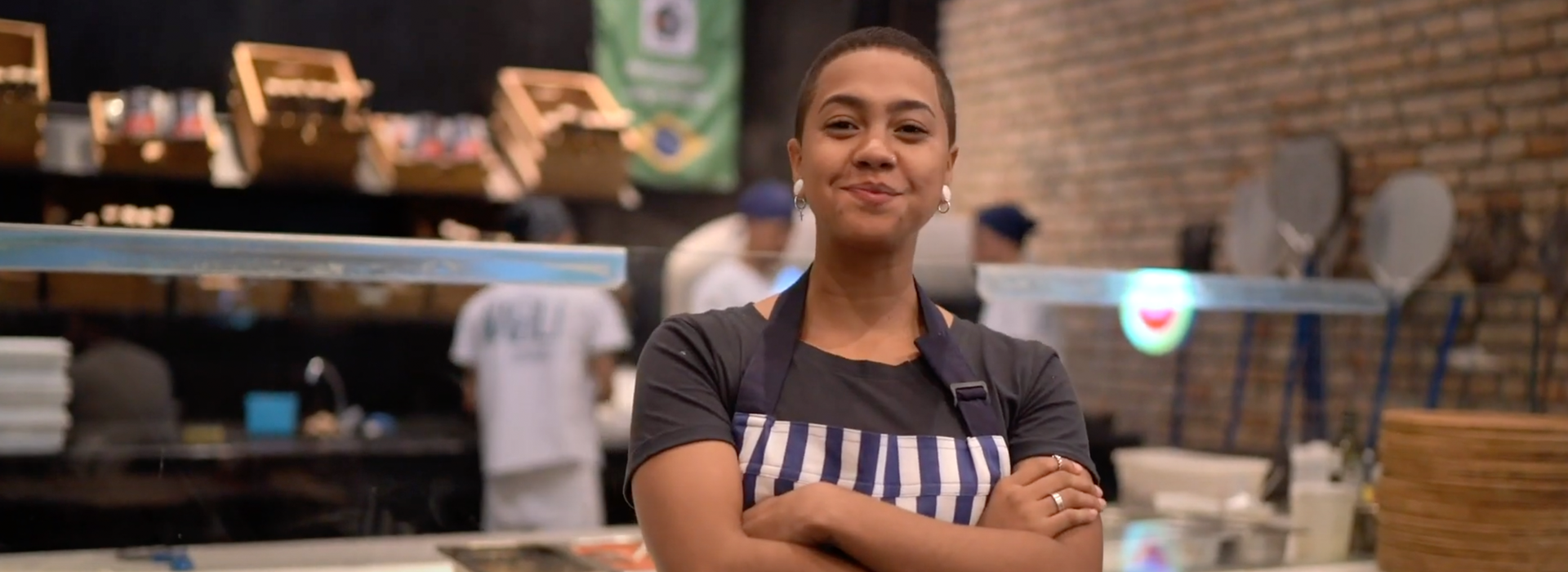
The urgency of unlocking capital for underserved businesses
December 22, 2020 | By Marla BlowCommunity development financial institutions (CDFIs), nonprofit financial intermediaries that serve as important conduits for the smallest businesses, were around long before COVID-19 sent U.S. businesses into lockdown. But they have been called on as the frontline support for small local businesses in the wake of the pandemic. With the backbone of our economy at risk of breaking, it’s more vital than ever that we build on this moment and support CDFI growth and modernization.
Over the last decade, CDFIs have been a lifeline to underserved small businesses that were considered too small and too high a risk for banks. By providing microloans and a support network, many women and people of color have been able to start and grow much-needed local businesses that contribute to a more inclusive and sustainable economy. This year, the inequalities already present in our financial systems were exacerbated as those most in need found help hard to come by. And a new spotlight was shone specifically on the significant disparities in economic opportunity between Black and white America.
The most recent Census Bureau data reveals that there are 2.58 million Black-owned businesses in the United States, generating $150 billion in annual revenue and supporting 3.56 million U.S. jobs — a sizable footprint. While we know that the typical Black family in America owns one-tenth the wealth of the typical white family, when we compare the accumulated wealth of white and Black small business owners, the median wealth gap decreases to a multiplier of three.
That’s encouraging, but the disruptive events of this year have exposed how Black entrepreneurs often struggle to secure capital and access to credit compared to their white counterparts. The disparities in this year’s economic recovery can be traced back to a perfect storm of events, including longstanding systemic inequities in the financial sector, a chaotic federal loan application process that overwhelmed many small businesses, and restrictive terms on the loans that kept some business owners from pursuing them.
To address the challenge of unlocking access to capital for minority-owned businesses, Mastercard, through The Center for Inclusive Growth, is supporting CDFIs, which typically have strong connections to local communities and can offer more hands-on help with small business needs such as financial management, loan applications and other back-office services key to success.
The Center has partnered with leading CDFI organizations including Community Reinvestment Fund USA (CRF), Accion Opportunity Fund, and Grameen America to help them integrate digital technologies so they can connect more micro and small businesses to the capital they need to grow. More than $8 million in grants have enabled nearly $7 billion in affordable capital to be delivered to underserved businesses across the U.S.
Grameen America’s systems modernization is one example of how CDFIs scale their services to communities in need. In its 12 years of service, Grameen America has served more than 132,000 women entrepreneurs, and distributed in excess of $1.6 billion in small business loans. The Center’s support enabled Grameen America to remain open during the COVID-19 crisis, highlighting how digitization improvements can serve as a community lifeline during economic storms.
Consider Grameen America customer Sheila Black’s success. She founded Liha, a mobile boutique launched in the heart of New York City’s Harlem neighborhood. For the past few years, she and her shop have been fixtures in the neighborhood, where the store thrived. But her business came to a screeching halt in March when the COVID-19 pandemic struck New York City. Sheila was forced to take her shop off the street and was unsure what the future would bring. With help from Grameen America, Sheila was able to receive a microloan and keep her business afloat.
The Center’s support of the Community Reinvestment Fund (CRF) has also helped minority-owned small businesses more efficiently navigate the complex process of applying for and receiving federal stimulus loans. When the coronavirus pandemic stalled much of the nation’s economic activity, employees at Community Reinvestment Fund worked feverishly to get emergency Paycheck Protection Program loans to cash-strapped small businesses such as Arubah Emotional Health Services.
Launched by Anissa Keyes, Arubah provides mental health services to the predominantly Black neighborhood of North Minneapolis. As Anissa built and expanded her business, CRF was the first and only loan she received. When the pandemic hit, community schools, which served as partner sites for patient care and delivery, shut down – resulting in a 45% reduction in revenue. Because CRF had a pre-existing relationship with Anissa and an understanding of her community-based business model, they were able to reach out to her, let her know when federal PPP loan applications were due, and work with her to submit the paperwork. The loan helped keep her business afloat and positioned her business to offer expanded mental health services to the Black community following the murder of George Floyd.
As the next round of PPP funding becomes available to small business owners, CDFIs will continue to serve as a catalytic engine for economic growth in minority communities. At Mastercard, we are putting the full weight of our company resources - everything from our products, services, technology and financial support – to support those on the front lines of change and tackle the systemic inequalities that have persistently prevented women and minority-business owners from reaching their full potential.
Our hope is that by ensuring the digital economy works for everyone, by expanding the reach of the programs and by supporting the increasing flow of capital, we can have a catalytic impact on the growth of underserved businesses across the country. Only then can we achieve inclusive and sustainable economic growth over the long term.
Browse more
Related Content
Video
Inclusive Opportunity: Increasing digital inclusion and financial security for all
VIDEO
Helping women entrepreneurs of color survive and thrive in the digital economy

